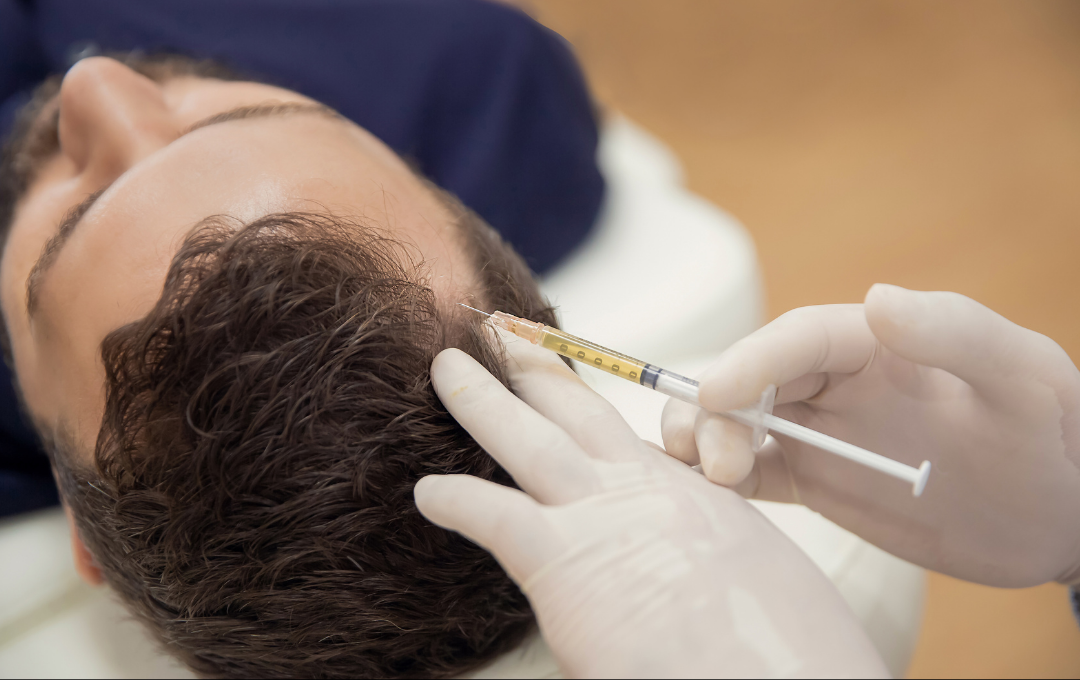PRP Hair Treatment in Atlanta: Does It Really Work for Hair Loss?

Hair loss can feel overwhelming—especially when you’re not ready to commit to surgery but still want real results. That’s where PRP hair treatment steps in. At Buckhead Hair Restoration, we offer advanced, non-surgical options like Platelet-Rich Plasma (PRP) therapy to help stimulate natural hair growth and restore your confidence.
Whether you’re just starting to notice thinning or dealing with long-term hair loss, PRP offers a safe, effective, and minimally invasive solution right here in Atlanta. In this guide, we’ll break down what PRP is, how it works, who it’s best for, and how to get started.
What Is PRP Hair Treatment?
Platelet-Rich Plasma (PRP) therapy is a regenerative treatment that uses the healing components of your own blood to rejuvenate hair follicles. By concentrating your blood’s platelets and injecting them into the scalp, PRP can help stimulate inactive hair follicles, promote new growth, and improve hair density.
It’s a favorite among both men and women looking for a natural approach to hair restoration without surgery, downtime, or harsh chemicals.
How PRP Works for Hair Loss
The science behind PRP is rooted in growth factors—proteins found in your platelets that are responsible for healing and cell regeneration. Here’s what happens during the treatment process:
- Blood Draw: A small amount of your blood is drawn, similar to a standard lab test.
- Centrifuge Processing: The blood is spun in a centrifuge to separate the platelets from other components.
- Injection: The PRP (rich in growth factors) is strategically injected into areas of the scalp experiencing thinning or shedding.
Once injected, the PRP works to nourish and repair hair follicles, extend the growth phase of the hair cycle, and improve blood supply to the scalp.
Who Is a Good Candidate for PRP?
PRP hair restoration is ideal for men and women who are:
- Experiencing early-stage hair thinning
- Struggling with pattern baldness (androgenetic alopecia)
- Looking to boost results from other treatments like Minoxidil, LaserCap, or microneedling
- Recovering from stress-related or postpartum hair shedding
- Not ready for surgical procedures like NeoGraft
If you still have active or dormant follicles, PRP can help revitalize them before they permanently shut down.

Why Address Thinning Edges Early?
Hair loss is progressive, meaning it often worsens over time. Treating thinning edges early allows us to preserve existing hair, stimulate new growth, and reduce the need for more aggressive treatments later.
Waiting too long could mean fewer active follicles left to respond to non-surgical treatments. Acting now puts you ahead of the curve.
The Atlanta Difference
Living in Atlanta means staying confident and camera-ready, whether you’re in the office, social settings, or special events. Edge thinning is common here, especially among patients who wear protective styles or are dealing with hormonal shifts—but it doesn’t have to be permanent.
For more on non-surgical options, visit: Best Non-Surgical Hair Restoration Treatments for Thinning Hair in Atlanta.
Ready to Restore Your Edges?
At Buckhead Hair Restoration, we offer both surgical and non-surgical solutions tailored to your unique hair goals. Whether you’re a man seeing early temple recession or a woman noticing thinning edges from styling or hormones, we’ll guide you to the treatment plan that delivers the best long-term results.
Call 678-752-4166 today or book your free consultation online to get started.
Not ready for a hair transplant? Ask us about VittiPure Microneedling to strengthen and restore thinning edges naturally.
Book Your Free Consultation Today
Our August & September Vittipure Microneedling Special won’t last long. Whether you’re just starting to notice thinning or you’re ready to restore your hair’s fullness, now is the perfect time to take action.
Buckhead Hair Restoration – Atlanta, GA
Call us at 678-257-4439
Book Your Free Consultation Online »
Explore More Hair Restoration Resources:
Request your FREE Consultation here:
"*" indicates required fields








